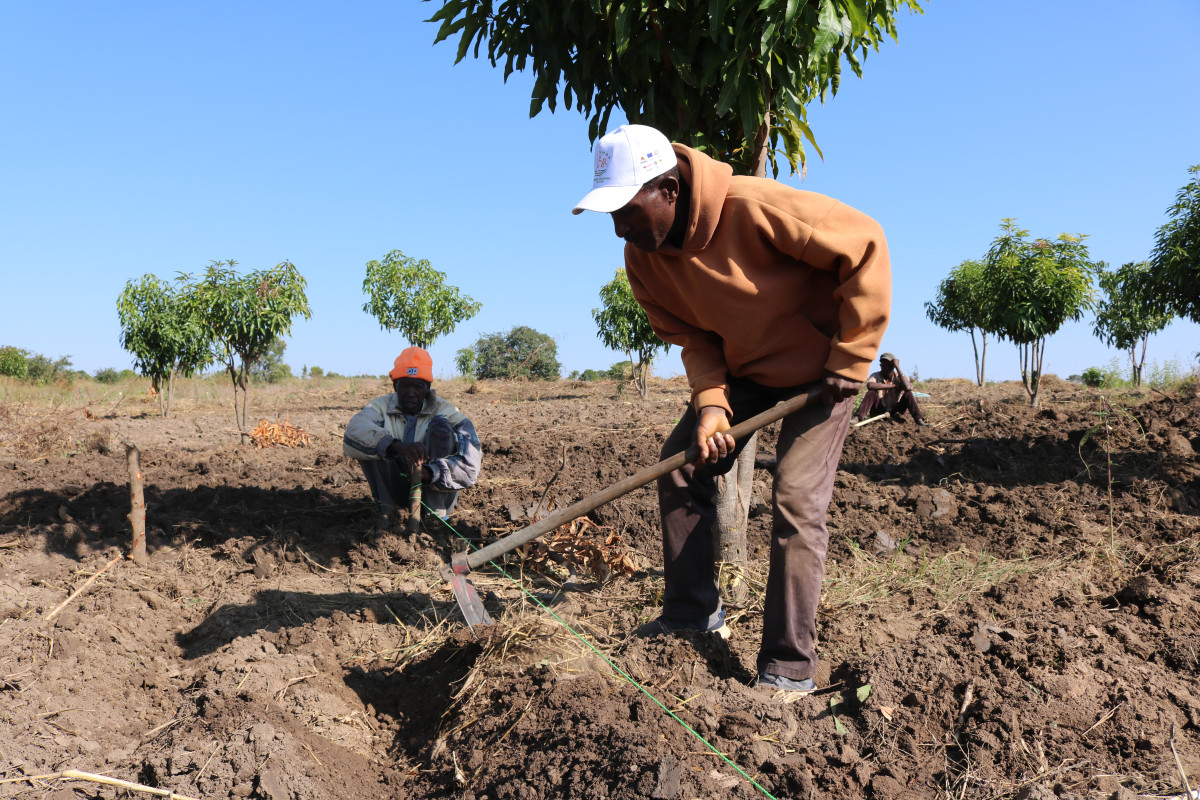Chitanda Project: Ensuring Food Security in Huíla Province, Angola
Published: Sep 30, 2024 Reading time: 3 minutes Share: Share an articleWe are pleased to announce the implementation of the second phase of the Chitanda Project, "Chitanda II: Resilient Agricultural Systems For Improving Food and Nutritional Security in Huíla." This project was initially developed between 2020 and 2022 in Chicomba and Jamba with funding from the European Union and now returns with the support of the Australian government under the Direct Aid Programme managed by the Department of Foreign Affairs and Trade. We are implementing the programme in the Dongo commune in Matome village, Jamba and will strengthen the resilience of farming communities to climate change in southern Angola, promoting food and nutritional security in the region.

The Chitanda II Project aims to strengthen agricultural communities' resilience and food security in the Huíla province, especially in areas affected by climate change. It will also increase small farmers' productive capacity by adopting innovative and climate-resilient farming practices and introducing agricultural processing technologies and biogas.
Project manager Abras Eliseu emphasised the importance of this phase, saying:
He also highlighted the relevance of introducing new agricultural technologies, such as product transformation and solutions, which will boost productivity and contribute to diversifying energy sources, making communities more self-sufficient.
The Chitanda II programme was structured to achieve results that directly benefit local communities, promoting sustainable development and strengthening resilience in the face of climate change. Farmer Field Schools (FFS) will play a central role in this process, providing specialised training in climate-adapted farming practices. This training will include advanced technologies for processing, storing, and marketing agricultural products. In this way, farmers can increase their production and add value to their products, expanding market opportunities and generating additional income for their families.
Introducing biodigesters in the communities will bring multiple benefits. It will provide a clean and renewable energy source, reducing fossil fuel dependency and helping mitigate greenhouse gas emissions. The process will also generate organic fertilisers, essential for sustainably improving agricultural productivity. This integrated approach promotes environmental sustainability and strengthens the autonomy and resilience of farming communities.
Through these actions, the Chitanda II project not only supports the development of local communities but also encourages adopting more sustainable agricultural practices, generating lasting positive impacts on the rural economy and environment.
Abras underlined the importance of innovative technologies.
"Chitanda II is not just about increasing agricultural production but about creating a sustainable system that improves food and nutritional security. We are providing small farmers with the necessary tools to become more adaptable, enabling them to confront the impacts of climate change."
Chitanda II will benefit thirty-five FFS members, fifteen women from self-help groups, and ten young people from the community, who we will train to construct biodigesters. This inclusive approach ensures that interventions reach those who need it most, strengthening the social and economic fabric of the communities involved.
Abras Eliseu concluded by expressing the importance of continued international support.
With an investment of AON 64,071,600, the project will last 12 months. Chitanda II reaffirms our commitment to supporting sustainable development in Angola's most needed regions. By promoting innovative agricultural practices, strengthening market connections, and improving family nutrition, the project meets immediate food security needs and strengthens communities' preparation for future climate challenges.



